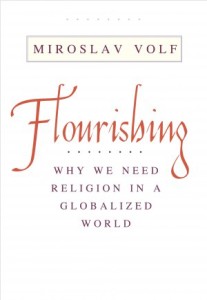
Helen Alvare offers a fascinating discussion—with links to other people’s fascinating discussions—of Merle Weiner’s proposal for an involuntary “parent partner status” in the law. (Give that it’s involuntary, “partner” may be stretching things.) Parents of children conceived outside marriage already have child support obligations to their offspring; Weiner’s idea is to also impose obligations to the other parent. It’s a complex proposal, not adequately summarizable in a blog post, but part of the idea is to create at least a minimal level of parental cooperation and some overlap between the parents’ interests, to the extent that we can. Another goal (putting on our moral realist hats) is to disincentivize non-marital childbearing—to take away from the non-caretaker parent a Get Out of Family Free card that he shouldn’t be allowed to play.
The details of the proposal are less important than the big-picture question. Some of the obligations Weiner proposes make sense—heightened protections against domestic abuse, heightened obligations to look out for the other’s interests in contractual agreements. Others are less likely to work—requiring “relationship work” with a counselor, sharing the child care “fairly” or incurring a debt to the parent doing “dispropotionate” care. It has also been asked how successful we are going to be at enforcing these requirements when when we are not yet highly successful at enforcing child support requirements—although that argument would not apply to some of the burdens Weiner proposes, such as heightened legal obligations in contracts.
But far more interesting is the general question of how we can think creatively to devise new legal tools to force recalcitrant parents to recognize the duties they have taken on by creating a child. The law must find some way to say to unmarried parents, “you make it, you bought it!” And not just with money for child support.
Weiner’s proposal, while addressed to a different immediate question, is in some ways complementary to ideas that have been recently proposed to make it easier for people who either can’t get married or don’t want to do so to join their civil interests—get each other’s health coverage, etc. Such proposals seek to provide an alternative to changing the definition of marriage in order to provide for those (whether same-sex romantic couples or any other pair—siblings, etc.) who seek some of the legal benefits that are currently associated only with marriage but could be extended to others without redefining marriage. Weiner’s proposal addresses non-marital childbearing rather than the definition of marriage. And it takes a different approach in that it seeks to impose duties involuntarily upon those who have sired children, rather than offering an additional legal option. However, the proposals are complementary in that they recognize the inadequacy of existing legal tools to deal with the current state of our civilization.
No matter how things go, we are going to need new legal arrangements surrounding marriage and family. That’s nothing new; marriage and family law have varied considerably over the past two thousand years. It’s not a good sign; the primary reason we need these new arrangements is our moral failure. And these new arrangements are going to be used to facilitate cruel and exploitative treatment. But the alternative, refusing to create any new legal tools to deal with new cultural situations, will probably be worse in that regard.


